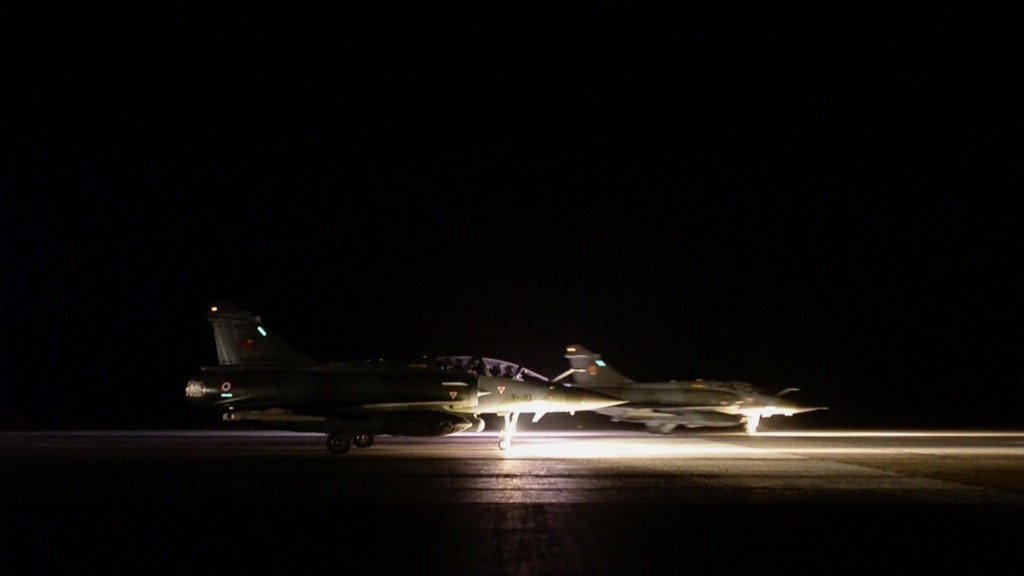
Oil halted its decline near the lowest close in more than two months as investors weighed a global supply glut against heightened geopolitical tension after France bombed Syria in response to terrorist attacks in Paris.
Futures rose as much as 0.9 percent in New York after slumping 8 percent last week, the most since March. French warplanes bombed Islamic State’s nerve center in Raqqa after France said Europe’s worst terror attack in a decade was directed from Syria and launched from Belgium. U.S. drillers put rigs back to work for the first time since August, data from Baker Hughes Inc. shows.
Crude has slid about 46 percent the past year amid signs the oversupply will persist as the Organization of Petroleum Exporting Countries continues to pump above its collective quota. Oil stockpiles have expanded to a record of almost 3 billion barrels because of strong production in OPEC and elsewhere, the International Energy Agency said Friday.
“The events in Paris create an uncertain situation in a whole lot of ways but any rally that we see in the oil price might be fairly limited,” Ric Spooner, a chief analyst at CMC Markets in Sydney, said by phone. “Inventories are very large and there is a significant supply overhang. The immediate focus of any possible escalation in activity would be in Syria and not in any significant oil-producing areas.”
Fighter Jets
West Texas Intermediate for December delivery climbed as much as 38 cents to $41.12 a barrel on the New York Mercantile Exchange and was at $41 at 1:40 p.m. Singapore time. The contract lost $1.01, or 2.4 percent, to $40.74 on Friday, the lowest close since Aug. 26. The volume of all futures traded was about 37 percent above the 100-day average.
Brent for January settlement was 45 cents higher at $44.92 a barrel on the London-based ICE Futures Europe exchange. The December contract expired Friday after falling 1 percent to $43.61. The European benchmark crude was at a premium of $2.67 to WTI for January.
Ten French fighter jets struck targets Sunday evening in Syria, hitting a command base, according to the Defense Ministry. Islamic State said the Paris attacks were payback for France’s military involvement in the Middle East.
Syria’s oil output was less than 25,000 barrels a day in May after averaging more than 400,000 barrels a day between 2008 and 2010, according to estimates from the Energy Information Administration. The nation borders Iraq, the biggest producer after Saudi Arabia in OPEC.
In the U.S., rigs targeting oil rose by 2 to 574 after more than 100 were idled since the start of September, Baker Hughes said on its website Friday. The nation’s crude stockpiles remain more than 100 million barrels above the five-year seasonal average after inventories rose for a seventh week through Nov. 6, according to data from the EIA.